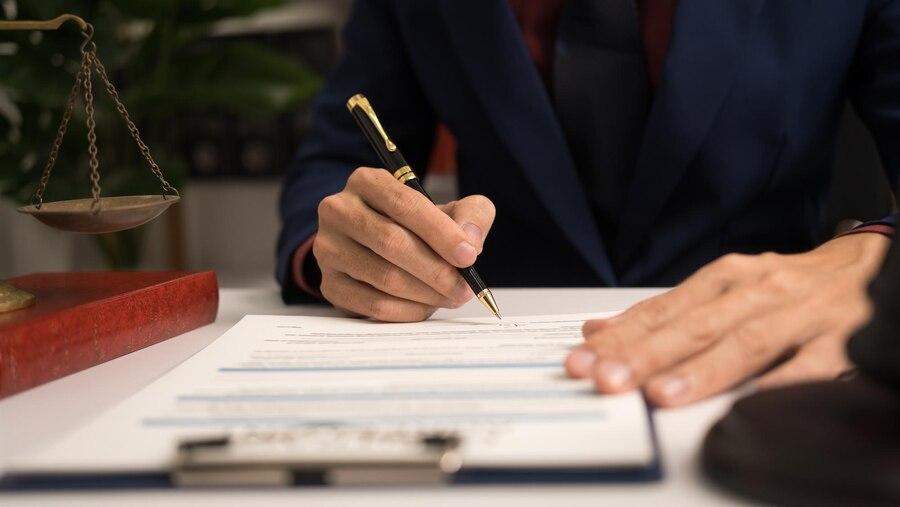

Table of Contents
- Introduction
- What is a Power of Attorney?
- Types of Power of Attorney
- Importance Power of Attorney in Real Estate Transactions
- How a Power of Attorney Works in Real Estate
- Risks and Considerations
- Legal Requirements for a Power of Attorney
- Conclusion
- Faq's
Introduction
In the realm of real estate, a Power of Attorney (PoA) is a crucial legal document that grants one person the authority to act on behalf of another in various matters, including property transactions. Understanding the nuances of a Power of Attorney can help individuals manage their real estate dealings more effectively and ensure that transactions proceed smoothly, even in situations where the primary party cannot be present.
What is a Power of Attorney?
A Power of Attorney is a legal document that authorizes one person (the agent or attorney-in-fact) to act on behalf of another person (the principal) in legal or financial matters. In the context of real estate, this document can be used to handle transactions such as buying, selling, or managing property.
Types of Power of Attorney
General Power of Attorney: Grants broad authority to the agent to act on behalf of the principal in all legal and financial matters.
Special or Limited Power of Attorney: Restricts the agent's authority to specific tasks or transactions, such as handling a particular property sale.
Durable Power of Attorney: Remains in effect even if the principal becomes incapacitated, allowing the agent to continue managing the principal's affairs.
Springing Power of Attorney: Becomes effective only upon the occurrence of a specific event, such as the principal's incapacity. Power of Attorney
Power of Attorney
Importance Power of Attorney in Real Estate Transactions
A Power of Attorney is particularly useful in real estate transactions for several reasons:
Convenience: Allows for transactions to proceed even if the principal is unavailable, whether due to travel, illness, or other commitments.
Flexibility: Can be tailored to specific transactions, providing flexibility in handling real estate deals.
Legal Authority: Ensures that the agent has the legal authority to sign documents and make decisions on behalf of the principal, thereby facilitating the smooth execution of transactions. Importance Power of Attorney in Real Estate
Importance Power of Attorney in Real Estate
How a Power of Attorney Works in Real Estate
Creating a Power of Attorney:
Drafting: The principal drafts the Power of Attorney document, specifying the scope of the agent's authority and any limitations.
Notarization: The document may need to be notarized to be legally binding, depending on jurisdictional requirements.
Registration: In some cases, the Power of Attorney must be registered with relevant authorities, such as a local land registry, especially if it involves real estate transactions.
Using the Power of Attorney:
Authorization: The agent uses the Power of Attorney to sign documents, negotiate terms, and make decisions related to the real estate transaction.
Transactions: The agent can manage tasks such as closing deals, transferring property titles, and handling financial aspects of the transaction. Power of Attorney Works in Real Estate
Power of Attorney Works in Real Estate
Risks and Considerations
While a Power of Attorney is a powerful tool, it is important to consider potential risks:
Misuse: There is a risk that the agent could misuse their authority, which is why it's crucial to choose a trustworthy and competent individual.
Revocation: The principal can revoke the Power of Attorney at any time, provided they are mentally competent to do so. It is important to formally notify all relevant parties if the document is revoked.
Jurisdictional Variations: The rules and requirements for Powers of Attorney can vary by jurisdiction, so it is essential to comply with local laws and regulations.
Legal Requirements for a Power of Attorney
The legal requirements for a Power of Attorney (PoA) can vary based on jurisdiction and the specific type of PoA being created. However, certain general principles and requirements are typically applicable. Here's a comprehensive overview:
Written Document:
A Power of Attorney must be in writing. Verbal agreements are not legally binding for PoAs. The document should clearly outline the powers being granted and the scope of authority.
Principal's Capacity:
The principal (the person granting the authority) must be legally competent and of sound mind when creating the Power of Attorney. This means they must understand the nature and implications of the document and be able to make informed decisions.
Agent's Identification:
The document should clearly identify the agent (the person granted authority) by including their full name and, in some cases, their address. This ensures there is no ambiguity about who has been given the power to act.
Specificity of Powers:
The Power of Attorney should specify the exact powers granted. For example, a Special or Limited Power of Attorney should detail the specific transactions or decisions the agent is authorized to make, such as handling a real estate sale.
Signatures:
The Power of Attorney must be signed by the principal. In some jurisdictions, the agent's signature is also required to acknowledge their acceptance of the role and responsibilities.
Notarization:
Many jurisdictions require the Power of Attorney to be notarized to be legally effective. Notarization involves having the document signed in the presence of a notary public, who verifies the identity of the signatories and witnesses the signing.
Witnesses:
In some jurisdictions, the document may need to be witnessed by one or more individuals. These witnesses must be impartial and not related to the principal or agent to avoid conflicts of interest.
Registration:
Certain types of Powers of Attorney, especially those related to real estate transactions, may need to be registered with local or state authorities, such as a land registry or county clerk's office, to be enforceable.
Durability Clauses:
If the Power of Attorney is intended to remain effective in the event of the principal's incapacity, it should include a durability clause specifying that it is a Durable Power of Attorney. Without this clause, the document may become void if the principal becomes incapacitated.
Revocation and Updates:
The principal should understand how to revoke or update the Power of Attorney if needed. This usually involves creating a formal revocation document and notifying all relevant parties, including the agent and any institutions or organizations where the PoA was used.
Legal Compliance:
Ensure the Power of Attorney complies with local laws and regulations. Legal requirements can vary significantly between jurisdictions, so it is crucial to follow the specific rules applicable in the relevant location.
Copies and Distribution:
After the Power of Attorney is executed, provide copies to all relevant parties, including the agent, financial institutions, or any other entities that may need to rely on the document. Keep the original document in a secure place.
By adhering to these legal requirements, a Power of Attorney can be effectively and validly executed, allowing the agent to act on behalf of the principal with the appropriate legal authority.
Conclusion
A Power of Attorney (PoA) is a fundamental legal tool that facilitates the delegation of authority from one individual to another, ensuring that essential decisions and transactions can be handled effectively, even in the principal's absence or incapacitation. Whether used broadly in a General Power of Attorney or specifically in a Special Power of Attorney, this document provides a means to manage legal, financial, and real estate matters with flexibility and efficiency.
By understanding the various types of Powers of Attorney General, Special, Durable, and Springing individuals can tailor the document to meet their specific needs and circumstances. It is crucial to ensure that the PoA is executed in accordance with local legal requirements, including proper notarization and, if necessary, registration. Careful selection of a trustworthy and competent agent is also essential to mitigate risks and ensure that the principal's interests are protected.
In summary, a well-drafted Power of Attorney can significantly simplify complex transactions and decision-making processes, offering peace of mind and continuity in managing important matters. Consulting with legal professionals can further ensure that the Power of Attorney is crafted effectively, complies with legal standards, and aligns with the principal's objectives.
explore further
Latest from Encyclopedia
More from Interactions
Resources
Dwello, for every home buyer, is a way to go from 'I feel' to 'I know', at no extra cost.


